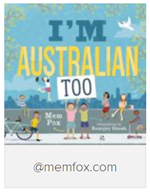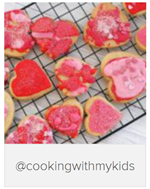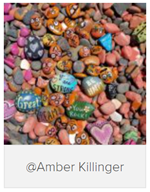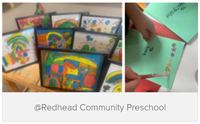The International Day of Friendship is an occasion to celebrate friendships between individuals and nations. By teaching children compassion, empathy, solidarity, mutual understanding and respect for diversity, we can pave the way to a brighter and more inclusive future, and perhaps make someone’s day when times are tough.
We look at ways early educators can help young children understand the importance of friendship in bringing communities together, and share fun ideas to celebrate this important day.
Proclaimed in 2011 by the UN General Assembly, the International Day of Friendship is held annually on July 30. The goal is to foster friendships between individuals, peoples and cultures to promote peace and solidarity.
Why is the International Day of Friendship important?
Community kindergarten director Marianna van der Zypp believes this special day provides a valuable opportunity to reinforce the Early Years Learning Framework’s pillar of “Belonging” to a community that brings together diverse people and cultures.
“Building friendships between peers, between educators and children, as well as between educators and families, is so important,” says Marianna.
“We focus on developing social skills, caring for each other, helping and supporting each other, and discussing topics of interest or concern. All of these things help children grow in confidence and self-esteem and reinforce a sense of belonging. We often refer to our kindy and its ‘inhabitants’ as our ‘kindy family.’”
How can early educators teach children about friendship and inclusivity?
A 2012 study found that children who were asked to perform three acts of kindness per week were not only more popular with their peers, but created a flow-on effect whereby their classmates were also more likely to be kind.
Educators also play an important role in this circle of kindness. The most effective way to teach young children about friendship is to model it, so demonstrate caring and sharing in your interactions with children and your coworkers. When you help a child tie their shoes or offer a cup of tea to another educator, little eyes will be watching you and taking it all in.
You can also help children identify and understand their emotions. Not only will this assist them in learning self-regulation, it will teach them empathy skills that are important in friendships. When you’re reading books, ask children to identify how the characters are feeling to further develop their ability to empathise.
Discuss how friends come in all shapes and sizes. Explain that a person’s worth doesn’t lie in their skin colour or other aspects of their appearance, but in their hearts. Model tolerance and inclusivity in your interaction with others.
What are some fun Friendship Day activities for ECEC services?
To celebrate Friendship Day, KU Ultimo Children’s Centre will focus on playing age-appropriate games in groups to develop the necessary social and emotional skills for building friendships.
“The focus of the games for the younger ages will be on turn-taking and sharing while the Preschool Room will play Uno and other such games with rules,” says centre director Rebecca Veltman.
Here are some other activities that can help to bring children together and communicate the importance of friendship:
Play games that encourage interaction and friendship
.jpg) ‘That’s me’ is a game where one person stands in front of the group and shares something about themselves. It could be their favorite food or animal. All the children who also share that favorite thing stand up and yell, “That’s me!” This is a great game to encourage interaction and bonding.
‘That’s me’ is a game where one person stands in front of the group and shares something about themselves. It could be their favorite food or animal. All the children who also share that favorite thing stand up and yell, “That’s me!” This is a great game to encourage interaction and bonding.
Another game that encourages bonding and meeting new friends is the matching game. Each child is given an item of a particular colour (could be a marble, piece of card or a ball). The aim is to find the other children who have the same coloured item. They then link arms and stay together until all groups are complete. It’s a great way to get children interacting who may not usually play together and to reinforce the idea that different people can have things in common.
Read books on friendship
 Look for books and toys that promote diversity and inclusion. We love Mem Fox’s wonderful I’m Australian Too and P.K. Hallinan’s A Rainbow of Friends.
Look for books and toys that promote diversity and inclusion. We love Mem Fox’s wonderful I’m Australian Too and P.K. Hallinan’s A Rainbow of Friends.
Bake friendship biscuits

Bake heart-shaped biscuits and decorate them. When they’re finished, make bundles of biscuits to give to friends and family.
GET THE RECIPE
Paint kindness rocks

Collect flat rocks during exercise excursions and paint colourful pictures on them. Make a kindness rock garden in front of your centre for all to see, or go for a walk in the community and hide them for people to find.
Start a pen pal or buddy program
 During the pandemic, many elderly residents of care homes have been left feeling more alone and isolated than ever – particularly those with no relatives to talk to via phone or digital devices. Consider creating a pen pal or buddy program with a local aged care home. Children could be paired up with a resident and friendship notes with drawings and artwork can be sent to the residents to show that someone cares.
During the pandemic, many elderly residents of care homes have been left feeling more alone and isolated than ever – particularly those with no relatives to talk to via phone or digital devices. Consider creating a pen pal or buddy program with a local aged care home. Children could be paired up with a resident and friendship notes with drawings and artwork can be sent to the residents to show that someone cares.
Find out how children at Redhead Community Preschool developed a relationship with their local care home, which continued electronically during last year’s lockdown in our Amplify article about the Gran Buddies program.
Alternatively, you could find a preschool or daycare centre to buddy with in another region, state or overseas and send cards and art by mail or email.
A wise soul once said:
“Friendship is the comfort of knowing that even when you feel alone, you aren’t.”
References
About CELA
Community Early Learning Australia is a not for profit organisation with a focus on amplifying the value of early learning for every child across Australia - representing our members and uniting our sector as a force for quality education and care.